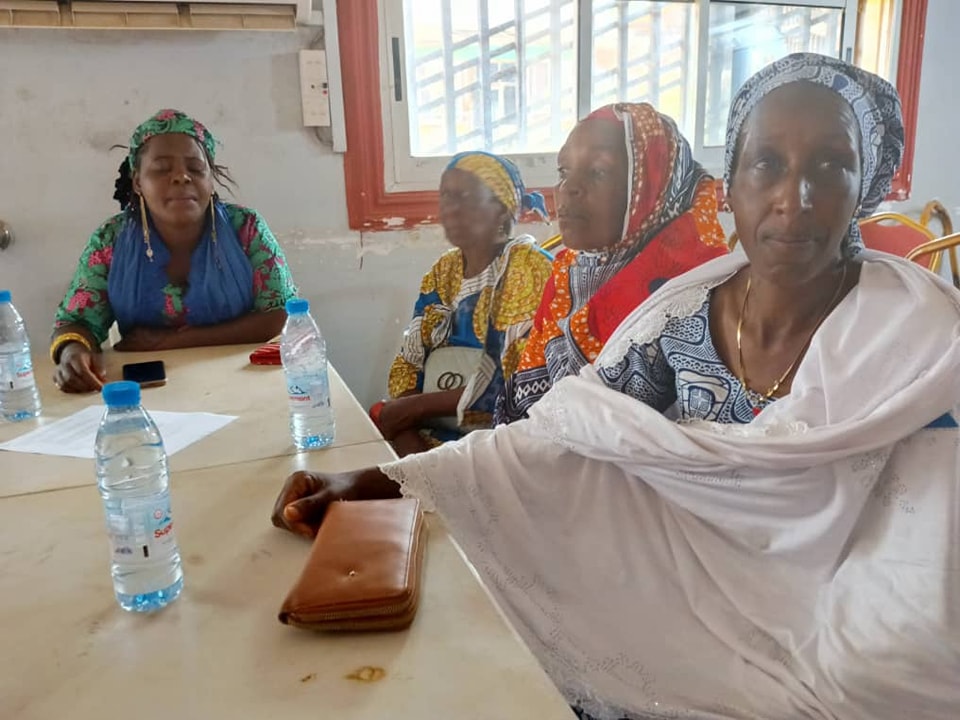CAEPA TRAINS FEMALE JOURNALIST ON LAND RIGHTS REPORTING

20 female practicing journalists in the NWR have been trained on land rights story telling in the city of Bamenda, North West Region of Cameroon. The workshop brings together female reporters from various facets of the media landscape with the aim to empower them on the need to delve into land rights reporting and amplify the voices of Mbororo women who are constantly marginalized and face stiff resistance to land ownership, access and control. This is mainly due to the restrictions customary law places on women as well as societal beliefs and practices passed down through generations.
The project coordinator Fenwi Linda, explains that the choice of female reporters have been strategically programmed "we thought of implementing the idea of women supporting women. Naturally these women exhibit a culture of silence and it becomes difficult for them to open up to outsiders especially men. Using female journalists to report on their stories will make them freely open up. These journalists we are training are to be on the same platform with these women and see how to amplify their stories on the media"
🤝 Women Supporting Women Strategy
Female journalists create a safe space for Mbororo women to share their stories, breaking the culture of silence and building trust through shared experiences.
Journalists undoubtedly are the voice of the people and CAEPA is banking on this portfolio to make the voices of these women heard. While reacting to CAEPA's initiative, Bih Sylvia a seasoned reporter with over 25 years of experience reporting in the NWR says that "CAEPA has done right involving us in this advocacy movement. Education has to continue on every media platform because both men and women have something to offer their community. We need to realize a state of equality for both boys and girls. The best medium for this vulgarization is the radio. If we maximize pidgin programs, you can be rest assured that the information will reach everyone in society. All journalists must come on-board to ring the bells and help these women gain access to their rights". Clenice Ayombom a reporter for the state media says " we are going back to write stories about the struggles these women face. We need to make their voices heard at all levels. We can produce programs, slots, documentaries to tell grassroots stories because they really need to be heard and their struggles addressed for societal benefit".
CAEPA has done right involving us in this advocacy movement. Education has to continue on every media platform because both men and women have something to offer their community. We need to realize a state of equality for both boys and girls. The best medium for this vulgarization is the radio. If we maximize pidgin programs, you can be rest assured that the information will reach everyone in society. All journalists must come on-board to ring the bells and help these women gain access to their rights.
We are going back to write stories about the struggles these women face. We need to make their voices heard at all levels. We can produce programs, slots, documentaries to tell grassroots stories because they really need to be heard and their struggles addressed for societal benefit.
Investigative stories highlighting land rights issues
Visual storytelling of Mbororo women's experiences
Radio programs raising awareness on land laws
Local language content reaching grassroots communities
At the training, general opinion holds that the session was worth their time and they have been able to gain knowledge on land laws and have equally been exposed to the plight of indigenous women in Cameroon. The facilitator Sah Terence remarked that, denying Mbororo women the right to land ownership undermines food security, economic stability and social equity. He stressed that the media can be a very useful tool to advocate for Mbororo women land use rights in Cameroon. Participants have been empowered to make use of their various portfolios in news writing, documentary film making and talk-shows to raise awareness and highlight the gaps within land laws while shedding more light on the lack of implementation mechanisms as they report on the benefits of Mbororo women's access to- and control over land.
